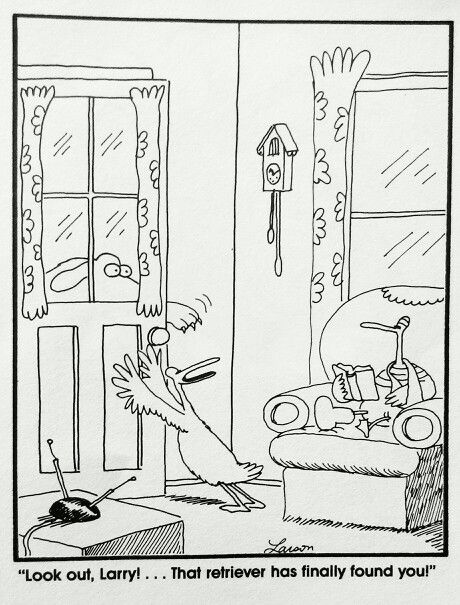I love watching duck hunts. My father-in-law lives in Maine on the edge of tidal marsh where the Saco River meets the Atlantic ocean. Every year around Christmas, at the tail end of the duck hunting season I watch folks placing their decoys and setting up their blinds from the comfort of Stickley settee near the wood-stove.
I don’t pick sides in that timeless contest even though the hunters have gained an advantage in last few hundred years. Actually, I root for the dogs. It always brings a smile to my face to watch a well bred, well trained dog coiled like a spring in anticipation for hours, holding steady even after the report of the gun, and then exploding from the reeds at his masters command. The joyful face of a water dog charging after a fallen duck is one of the purest, most joyful, and simultaneously frightful things I think there is.
Anyway, I loved the wordplay associating medical “quacks” with ducks, and the imagery of the medical industrial complex as duck hunters rising from the reeds. Unexpected and delightful… 


 . It’s been a problem during 5.5 years keto and 1.5 years Carnivore. I am a week in and feel tired and somewhat nauseous. I am eating fried lambs brain (200 g) and lots of pork belly (500-700 g) which is too much food. My ketones have not risen above 0.4 so need to cut to 400 g of fatty meat per day. I don’t think I can stick with it.
. It’s been a problem during 5.5 years keto and 1.5 years Carnivore. I am a week in and feel tired and somewhat nauseous. I am eating fried lambs brain (200 g) and lots of pork belly (500-700 g) which is too much food. My ketones have not risen above 0.4 so need to cut to 400 g of fatty meat per day. I don’t think I can stick with it.